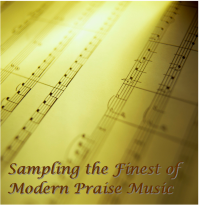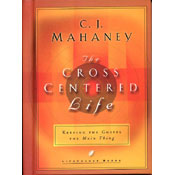“The passion of the Song of Solomon is a majestic revealer of our sterility. It is one of the greatest expressions of the gospel in all of Scripture, and it shows us how little we understand. It gives us the very heart of Christian theology, the center of all doctrine and practice. And, yet, like an old friend, it has pity on us. It mercifully mocks our pervasive intellectualizing of the gospel and our clinical views of holiness.
“Can we hear the gospel in the following, without flinching?
“Let him kiss me with the kisses of his mouth; for your love is better than wine…. A bundle of myrrh is my beloved to me, that lies all night between my breasts. My beloved is to me a cluster of henna blooms, In the vineyards of En Gedi…. Like an apple tree among the trees of the woods, so is my beloved among the sons. I sat down in his shade with great delight, and his fruit was sweet to my taste. He brought me to the banqueting house, and his banner over me was love. Sustain me with cakes of raisins, refresh me with apples, for I am lovesick. His left hand is under my head, and his right hand embraces me” (Song 1:2,13,14; 2:3-6).
“Most American Christians can’t get past the opening compliment to wine, let alone understand how lovemaking is supposed to transcend it. Our indifference to wine is connected to the unsensual utilitarianism of our marriage beds. They go hand in hand. And if our marriage beds are supposed to reflect the glories of the gospel, then it’s no wonder the Church is so ugly. The Song assumes these are all tied together. We will never live the gospel fully until we can embrace the blinding holiness of the marriage bed, the exhilarating bodily union of husband and wife, lovemaking.
….
“The Tabernacle and Temple reveal the holiness of sexual union too. They were not only called the “house of God” (Ex. 23:10; Jdgs. 20:18; Jn. 2:16), they were designed with the components of an actual house. In them we find the outer courts typical of our porches and yards and, inside, places for food preparation and cooking and cleansing. As you move further in, the rooms increase in privacy, until you reach the Holy of Holies, the most sacred place of judgment and communion. That is where God could finally meet with the bride. That is where the holiest communion took place. In our homes, too, we have walls and kitchens and washing places, and we have a most-private area of intimate communion as well: the bedroom, the marriage bed. The marriage bed in this analogy is parallel then, not to an outer room or any other outer furniture, but to the Holy of Holies. What goes on there is the most intimate communion of all between husband and wife. With the marriage bed as our Holy of Holies, it is not a place for abomination or degradation or pietistic indifference. Lovemaking is a glorious, positive holiness and ought to be celebrated as such; it is at the center of honoring God. (And thankfully, communion in the Holy of Holies is not a once-a-year affair anymore!)
….
“Real knowledge is bodily love and communion. It is imagination that is touching and indwelling. It isn’t dominated by the intellect and rationality. Yet our theologies (even articles like this one!) tend to be very intellectualistic. Imagine if we were to approach the marriage bed as intellectualistically as we approach our theology. We would kill the joy. You cannot analyze lovemaking without dispersing the delight. That is a wonderful aspect of the marriage bed. Lovemaking goes to the soul, far deeper than any reason can. Yet we can constrain the gospel in the same way. We often intellectualize the gospel to such an extent that people can’t know the joy – our children can’t know the joy. The lure and draw of sexual joy is supposed to parallel the lure of the goodness of God. The two go hand in hand. We strangle both while stuffing our children’s intellects, and then wonder what went wrong. We are a nonsensual, unpoetic people; we are foreigners to the Song of Solomon. [emphasis added]
“God has filled the universe with many earthy, imaginative symbols; of these lovemaking is very central….It is no evolutionary accident, for example, that lovemaking builds and climaxes in ecstatic joy. God didn’t have to design sex that way. But He did for some meaning. It certainly images the “joy inexpressible” (1 Pet. 1:8] that the bride has for Christ: “In Your presence is fullness of joy; at Your right hand are pleasures forevermore” (Ps. 16:11). Like the marriage bed, this joy can’t always be held in; sometimes it just has to be shouted – “shout for joy, all you upright in heart!” (Ps. 32:11; cf. 33:11; 35:27; 65:13; 67:4; 132:9,16). Lovemaking, too, should never be too quiet.
“And it can turn our souls toward the deeper aspects of life. Note the Song of Solomon’s imaginative and sensual interplay between the created order and the marriage bed. Few, if any, syllogisms show up in the poem. But the Lord does tell us to smell and see and touch and taste in the Song: ‘How fair is your love, my sister, how much better is the scent of your perfumes than all spices…. You have doves’ eyes, your lips are like a strand of scarlet and your mouth is lovely…. The curves of your thighs are like jewels, the work of the hands of a skillful workman. Your naval is a rounded goblet…. Your waist is a heap of wheat set about with lilies…. His body is carved ivory inlaid with sapphires. His legs are pillars of marble set on the bases of fine gold. His mouth is most sweet; yes, he is altogether lovely…. Let your breasts be like clusters of the vine, the fragrance of your breath like apples, and the roof of your mouth like the best wine.’
“So much is built into this poetry. And so many battles lie at this crossroads within our own homes, quite apart from combatting the ugly immodesties and boring exhibitionisms of a surrounding pagan culture that is plain deer-eyed about real sexuality (James 3:14-15; Jude 1:16). Lovemaking can not only sanctify us, but it also shows us more about the nature of God and knowledge and education and all of life. By being a more sexual, a more sensual people, we can educate our children and congregations to delight in creation and redemption, paying attention to the symbols and delights that God has sculpted all around us. What a wonderful calling. Whatever is scented, whatever love is better than wine, whatever breasts are like towers, if there is anything perfumed or tasty, meditate on it and ravish your beloved in your Holy of Holies.”
[Read the whole article. Ephasis added.]
 I apologize for the scarcity of posts around here of late. It’s been a very busy few weeks and on top of it all I can’t shake this cold. I thought I would at least highlight the recent Desiring God Conference, although I’m sure many of my readers know of the free audio/video from it already.
I apologize for the scarcity of posts around here of late. It’s been a very busy few weeks and on top of it all I can’t shake this cold. I thought I would at least highlight the recent Desiring God Conference, although I’m sure many of my readers know of the free audio/video from it already. Here is another great song from the authors of
Here is another great song from the authors of 
